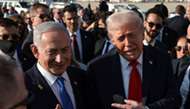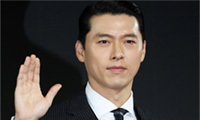Amid the horrors of Darfur, acts of courage and selflessness.
NICHOLAS D. KRISTOF
GOZ BEIDA, Chad
So I’m bunking with George Clooney in a little room in a guest house here in eastern Chad, near Darfur in Sudan. We each have a mattress on the floor, the“shower”is a rubber hose that doesn’t actually produce any water, and George’s side of the room has a big splotch of something that sure looks like blood.
He’s using me to learn more about Darfur, and I’m using him to ease you into a column about genocide. Manipulation all around - and, luckily, neither of us snores. (But stay tuned to this series for salacious gossip if he talks in his sleep.)
The slaughter in Darfur has continued for six years largely because world leaders have been complacent and preoccupied. In the coming weeks, the International Criminal Court is expected to issue an arrest warrant for Sudan’s president, Omar Hassan al-Bashir, for orchestrating the killings - and that will give the world a new opportunity to end the slaughter.
But to seize that opportunity, world leaders will have to summon some of the same moral courage that Darfuris show all the time.
Take Suad Ahmed, who is in the pantheon of my personal heroes. I introduced her to George in her little thatch hut. Suad, 27, fled from Darfur to a refugee camp in Chad five years ago with her husband and beloved younger sister, Halima, who is now 12 - if she is still alive.
Then Sudan dispatched its janjaweed militias into Chad to slaughter members of black African tribes - applying to eastern Chad the same genocidal policies that had already gutted Darfur.
Shortly before I met Suad two years ago, she was out gathering firewood with Halima. A group of janjaweed fired into the air and yelled at them to stop.
Suad, who was married with two children and another on the way, ordered Halima to run back to camp. Then Suad made a decoy of herself and ran loudly in the opposite direction, making sure that the janjaweed saw her. That night, after the janjaweed had left, the men from the camp found Suad semiconscious in the bush, brutally beaten and raped.
Suad refused medical treatment, for fear that word would get out that she had been raped, and she didn’t even tell her husband, instead saying that she had been robbed and beaten. Yet she revealed the full story to me and allowed me to use her name.
I questioned her to make absolutely sure she understood the dangers of publicity - from stigma and revenge - and asked her why she was willing to assume the risks. She replied simply,“This is the only way I have to fight genocide.”
Ever since, in a world that has proved so craven in the face of Sudan’s genocide, Suad’s courage has haunted me. Thus on this trip I tracked her down and introduced her to George and to Ann Curry of NBC News, who for years has borne powerful witness to the madness of Darfur.
Alas, Suad’s latest news isn’t good. Her back, injured in the beating, still pains her. She doesn’t dare go outside the camp to get firewood, so she must buy wood, which leaves the family poor and short of food. Her baby, Abdel Malik, whom she was carrying at the time of the rape, is one and a half years old and was just hospitalized for malnutrition.
The most heartbreaking news concerns Halima. Ten months ago, Halima decided to go back to Darfur to the camp where her parents were living. They had sent messages that they were sick, and that there were too many soldiers around for them to escape to Chad. So Halima, at age 11, resolved to walk back through janjaweed lines into Darfur to rescue her parents and bring them to safety.
The girl disappeared into the desert.
“I haven’t heard from her since,”Suad said grimly.“I don’t know if she got there, or if she was killed on route.”Suad has spent a fair amount of money trying to call people in the camp to find out news of her sister and parents, but she has found out nothing.
This is my 10th trip to Darfur and the area around it, and people always ask how reporters and aid workers keep their sanity among such horrors. Yet the truth is that genocide spotlights not only the worst of humanity, but also the best - the courage and altruism of people like Suad and Halima.
So the most indelible memories I will take back from the region aren’t from my famous roommate on the mattress beside me, but from uncommon heroes like Suad and Halima. We can learn so much from them.
스마터리빙
more [ 건강]
[ 건강]이제 혈관 건강도 챙기자!
[현대해운]우리 눈에 보이지 않기 때문에 혈관 건강을 챙기는 것은 결코 쉽지 않은데요. 여러분은 혈관 건강을 유지하기 위해 어떤 노력을 하시나요?
 [ 건강]
[ 건강]내 몸이 건강해지는 과일궁합
 [ 라이프]
[ 라이프]벌레야 물럿거라! 천연 해충제 만들기
 [ 건강]
[ 건강]혈압 낮추는데 좋은 식품
[현대해운]혈관 건강은 주로 노화가 진행되면서 지켜야 할 문제라고 인식되어 왔습니다. 최근 생활 패턴과 식생활의 변화로 혈관의 노화 진행이 빨라지고
사람·사람들
more
“취미생활로 다진 친목… 선후배들과 만든 모교사랑”
사진러브한인 사진 동호회 사진러브(회장 크리스 고)는 13일 용수산에서 송년모임을 갖고 한 해를 마무리하는 뜻깊은 시간을 가졌다. 이날 모임에…

[홀인원] 이상원 박사
일반외과 전문의 이상원(왼쪽) 박사가 지난 9일 뉴포트비치 소재 골프장 9번 홀(152야드)에서 레스큐 클럽으로 친 샷이 그대로 홀에 빨려 들…
[송년행사 게시판] 재미시인협회
재미시인협회(회장 지성심)는 오는 20일 오후 4시 가든스윗호텔에서 한 해를 마무리하며 동인지 ‘외지’ 제35집 출판 기념회와 ‘제23회 재미…
[송년행사 게시판] 향군단체 연합
6.25 참전유공자회와 대한민국 육군협회 등 남가주 지역 향군 단체 연합은 19일 오전 11시30분, 용궁에서 송년 행사를 개최한다. 드레스코…
[송년행사 화보] “이웃과 함께 나누고 지인과 함…
KYCC13일 윌튼 플레이스 초등학교에서 열린 ‘한인타운청소년회관(KYCC) 홀리데이 카니발’이 성황리에 막을 내렸다. 올해는 KYCC 창립 …
많이 본 기사
- ‘손예진♥’ 현빈, 학부모 모드ON.. “아들이 배우 한다면? 하..” 한숨
- 젤렌스키 “우크라 선거 방식, 푸틴이 결정할 문제 아냐”
- [건강포커스] “밤에 더 자주 깨는 어르신, 다음 날 인지수행 능력 떨어져”
- 요르단 “美 시리아 IS 공습에 참여…안보 위협 저지”
- ‘새댁’ 함은정, 결혼식 하자마자..내조의 여왕
- 尹 김건희특검 첫 조사 8시간 반 만에 종료…6개 혐의 모두 부인
- 쿠팡 주주, 美법원에 집단소송… “정… 1
- 트럼프, ‘바이든 임명’ 직업 외교관 출신 대사들 대거 소환
- 與 “내란 2차 종합 특검해야”…국힘 “통일교 특검이 국민 명령”
- 안세영, ‘천적’ 야마구치도 넘었다…역대 최다승까지 단 한 걸음
- ‘이젠 SD 송성문’ 3루엔 ‘3억 5000만 달러’ 마차도 버티는데... 단장이 답했다 “다양한 역할 소화할 것”
- 교황, 전세계 추기경 바티칸 소집…내달 7∼8일 첫 회의
- 개명 하루만에 케네디센터 외벽에 ‘트… 1
- ‘유세방불’ 트럼프 “관세가 물가 올… 1
- 신민아♥김우빈, 결혼식 날 웨딩 사진 첫 공개..눈부신 투샷
- “네타냐후, 트럼프 만나 ‘이란 추가 타격’ 설명 계획”
- ‘80세’ 선우용여, 대세 유튜브 수… 1
- “박나래, 주사 이모 약에 내성 생겨..약 떨어지면 연락하라고”
- 이 대통령 “피도 눈물도 없는 금융사… 1
- 동업자에서 채무자로..MC몽, 차가원… 1
- “개인 부동산 취득, 법카 사적 유용” 박수홍 친형 구속 이유 보니
- 故윤석화 빈소에 추모 발길… “하늘에서 좋은 작품 많이 하기를”
- 시민권 박탈 착수⋯매달 200명 1
- 대북제재 완화 시그널… 이 대통령, … 1
- 위기의 트럼프 “내년봄 최대규모 세금환급”
- ‘김혜성도 넘었다’ 6년 120억 결… 1
- ‘테슬라 2018년 머스크 보상안’ 법원서 부활…1천400억달러 규모
- 뉴욕주 차량운전자 벌점 규정 대폭 강화
- “루비랑 데이트”..송혜교의 따뜻한 연말
- 구글, 검색결과 크롤링 업체 상대 소송…AI 경쟁사 견제 의도
- “AI 보안으로 클라우드 시장 잡자”…구글, 100억 달러 보안 파트너십
- 법무부, ‘엡스타인문건’ 공개…정재계 추가 연루 증거 나올까
- 퀸즈장로교회 ‘사랑의 바구니’130개 이웃에 전달
- 명문대 조기전형 합격률 속속 발표
- 금리 인상 ‘엔 캐리(싼 이자로 엔화 빌려 투자)’ 빠져나갈라… 비트코인·환율 ‘출렁’
- 해군, 트럼프 ‘황금함대’ 새 전함 … 1
- [업계] 12월 내내 크리스마스 특별 메뉴 출시
- 뉴욕-뉴저지 다리· 터널 통행료 또 오른다
- 尹 소환한 김건희특검, ‘명태균 의혹’부터 6가지 혐의 순차 추궁
- 30년 만에 ‘금리 0.5%’ 허문 일본
- 이 대통령, “불법촬영물, 초국가 범… 1
- 파워볼 1등 잭팟 15억 달러로 치솟아
- 고환율, 생산자 물가 석달째 오름세
- 브라운대 총격 용의자 시신 발견… ‘… 1
- 아마존, 칩 조직 통합 개발사 본격 변신 포석
- “불공정 행위 걸리면 망하게 대기업 과징금 세게 때려야”
- 북한군, 지난달 MDL 10번 넘었다
- 트럼프, 화성은 미루고 달부터…머스크… 2
- 美, 동태평양서 또 마약운반선 2척 공격…5명 사망
- 김민선 백악관 자문위원 백악관 연말 파티 참석
1/5지식톡

-
 ☝️해외에서도 가능한 한국어 선생님…
0
☝️해외에서도 가능한 한국어 선생님…
0이 영상 하나면 충분합니다!♥️상담신청문의♥️☝️ 문의 폭주로 '선착순 상담'만 진행합니다.☎️ : 02-6213-9094✨카카오톡ID : @GOODEDU77 (@골뱅이 꼭 붙여주셔야합니다…
-
 테슬라 자동차 시트커버 장착
0
테슬라 자동차 시트커버 장착
0테슬라 시트커버, 사놓고 아직 못 씌우셨죠?장착이 생각보다 쉽지 않습니다.20년 경력 전문가에게 맡기세요 — 깔끔하고 딱 맞게 장착해드립니다!장착비용:앞좌석: $40뒷좌석: $60앞·뒷좌석 …
-
 식당용 부탄가스
0
식당용 부탄가스
0식당용 부탄가스 홀세일 합니다 로스앤젤레스 다운타운 픽업 가능 안녕 하세요?강아지 & 고양이 모든 애완동물 / 반려동물 식품 & 모든 애완동물/반려동물 관련 제품들 전문적으로 홀세일/취급하는 회사 입니다 100% …
-
 ACSL 국제 컴퓨터 과학 대회, …
0
ACSL 국제 컴퓨터 과학 대회, …
0웹사이트 : www.eduspot.co.kr 카카오톡 상담하기 : https://pf.kakao.com/_BEQWxb블로그 : https://blog.naver.com/eduspotmain안녕하세요, 에듀스팟입니다…
-
 바디프렌드 안마의자 창고 리퍼브 세…
0
바디프렌드 안마의자 창고 리퍼브 세…
0거의 새제품급 리퍼브 안마의자 대방출 한다고 합니다!8월 23일(토)…24일(일) 단 이틀!특가 판매가Famille: $500 ~ $1,000Falcon: $1,500 ~ $2,500픽업 & 배송직접 픽업 가능LA…
케이타운 1번가
오피니언
 한영일 / 서울경제 논설위원
한영일 / 서울경제 논설위원[만화경] 웰다잉 인센티브
 캐슬린 파커 워싱턴포스트 칼럼니스트
캐슬린 파커 워싱턴포스트 칼럼니스트 [캐슬린 파커 칼럼] 아이들을 온라인에서 보호하기
 양상훈 수필가ㆍ시인
양상훈 수필가ㆍ시인 [한국춘추] 경제대공황ㆍ제2차 세계대전 승리로 극복한 루스벨트 리더쉽

[왈가 왈부] 고환율에 외환 건전성 완화·서학개미 규제… 미봉책 아닌가요
 수잔 최 한미가정상담소 이사장 가정법 전문 변호사
수잔 최 한미가정상담소 이사장 가정법 전문 변호사 [수잔 최 변호사의 LIFE &] AI 시대 편리함에 안주하지 말자
 김도년 성균관대 건축학과 교수 스마트도시·건축학회장
김도년 성균관대 건축학과 교수 스마트도시·건축학회장 [로터리] 지멘스가 만드는 미래 동네
1/3지사별 뉴스

퀸즈장로교회 ‘사랑의 바구니’130개 이웃에 전달
퀸즈장로교회가 18일 크리스마스를 앞두고 교인들의 정성과 사랑이 듬뿍 담긴 ‘사랑의 바구니’ 130개를 소방서와 경찰서, 요양원, 선교회, 그…
시민권 박탈 착수⋯매달 200명

“이웃 돌보는 여러분이 동역자”
워싱턴성광교회(담임목사 임용우)는 18일 한인단체와 소방서‧도서관 등에 총 2만9천 달러의 성금을 전달했다. 지난 2011년부터 15년째 지역…
소기업 지원에 1천만 달러 투자

위기의 트럼프 “내년봄 최대규모 세금환급”
트럼프 대통령은 17일 “취임 1년 만에 우리는 누구도 상상하지 못한 성과를 이뤄냈다”고 말했다.트럼프 대통령은 동부시간 이날 밤 9시부터 백…
[새해부터 이렇게 달라진다] 최저임금 또 오르고… 유급 병가는 더 확대

오늘 하루 이 창 열지 않음 닫기 




















































.png)


댓글 안에 당신의 성숙함도 담아 주세요.
'오늘의 한마디'는 기사에 대하여 자신의 생각을 말하고 남의 생각을 들으며 서로 다양한 의견을 나누는 공간입니다. 그러나 간혹 불건전한 내용을 올리시는 분들이 계셔서 건전한 인터넷문화 정착을 위해 아래와 같은 운영원칙을 적용합니다.
자체 모니터링을 통해 아래에 해당하는 내용이 포함된 댓글이 발견되면 예고없이 삭제 조치를 하겠습니다.
불건전한 댓글을 올리거나, 이름에 비속어 및 상대방의 불쾌감을 주는 단어를 사용, 유명인 또는 특정 일반인을 사칭하는 경우 이용에 대한 차단 제재를 받을 수 있습니다. 차단될 경우, 일주일간 댓글을 달수 없게 됩니다.
명예훼손, 개인정보 유출, 욕설 등 법률에 위반되는 댓글은 관계 법령에 의거 민형사상 처벌을 받을 수 있으니 이용에 주의를 부탁드립니다.
Close
x